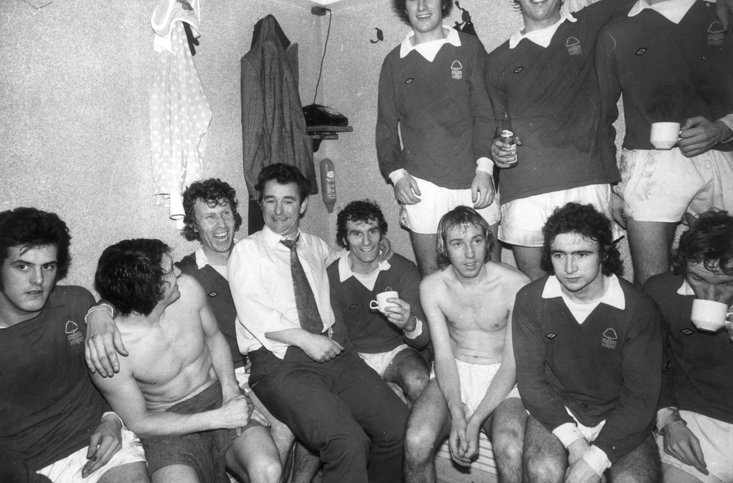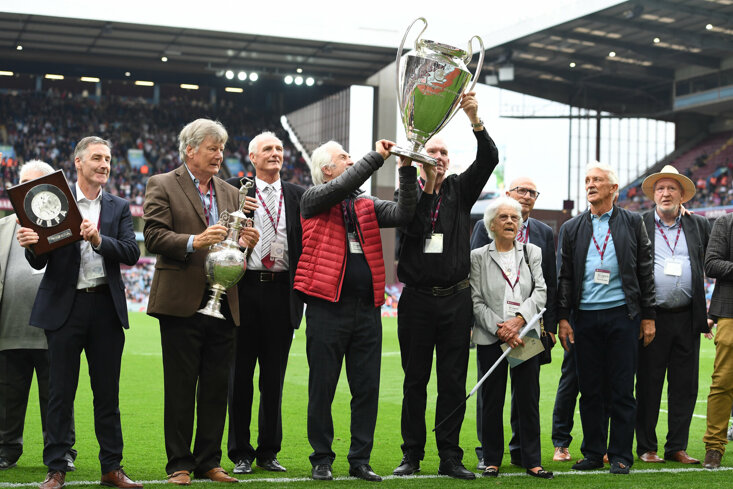Take a look at the Premier League table right now. No, not the top half. Keep going down. Yes, there’s Aston Villa. Scroll a bit further, a bit more. There, right at the foot, are Nottingham Forest. Two teams of great note have three wins between them after eight matches this season.
Yet only nine clubs in England have won more major trophies than Nottingham Forest. Just six have earned more than Aston Villa. Ask any football fan to make their list of ‘big clubs’ and their names won’t take long to pop up. Whenever the current league table is not enough to sate our need to measure sides against one another, Villa and Forest are part of the equation.
And for all the hyperbole about English football being the greatest thing in the world right now – at a time when Premier League clubs have accounted for just two Champions League titles in the last decade – Villa and Forest were right in the middle of it when England truly ruled Europe.
READ MORE:
- "Clough and my mates won the European Cup"
- When Barton and Villa ruled Europe
- Betfred's additional markets for Forest v Villa*
Sure, Liverpool won three of this country’s six successive European Cups between 1977 and 1982, but the Midlands pair – who come head-to-head at the City Ground on Monday night – shared the other three in what were true halcyon days.
Forest were under Cloughie back then. When the great Brian Clough first walked into the manager’s office at the Second Division club in 1975, they had never bettered their single second-place finish in the old First Division back in 1967. Their last championship of any type was the Third Division South in 1951, while they’d won two FA Cups 61 years apart, the most recent in 1959. Three Fairs Cup ties over two campaigns were the extent of their European history.
But Cloughie came in with a different kind of history. He’d won both the Second Division and then the top flight with little Derby County and taken the Rams to a European Cup semi-final before having one too many bust-ups with chairman Sam Longson. Then he made the curious decision to join Third Division Brighton & Hove Albion for a short spell before being offered the chance to success Don Revie at league champions Leeds United in the summer of 1974. He endured a tempestuous 44-day spell at Elland Road before being sacked, and later that season he was to begin an 18-year association with Forest.

By 1978, Forest were champions of England with a squad of players most of whom had been second-tier fodder. Clough had again found a way to make everyday Div Two players into championship-calibre footballers, just as he had at Derby. This time, he went on to dominate Europe too.
In ’78-79, a 2-0 home-leg win helped them past back-to-back European champs Liverpool in the First Round before they also accounted for AEK Athens, Grasshoppers and Koln before Trevor Francis, the first £1m footballer, scored the only goal in the Munich final against Malmo. One year on, they were back for more in Madrid, beating Hamburg 1-0 thanks to John Robertson’s first-half effort. The Spanish capital was a long way to go to polish their trophy and return it home.
While Liverpool were returning to the top of Europe in 1981, they couldn’t do better than fifth at home as Aston Villa won their only league title since 1910 to reach the European Cup for the first time in their history in 1981-82.
Under Ron Saunders they had achieved similar to Clough’s Forest, coming up from the Second Division to become English champions. With the likes of goalkeeper Jimmy Rimmer, Tony Morley, Gordon Cowans and Peter Withe, the latter of whom had also been a league winner at the City Ground, Villa looked well set to have a good run at the European Cup.
But that seemed like a huge task after Saunders quit the following February having had several disagreements with the board over his contract. Assistant boss Tony Barton stepped into the breach though, and three months later they were in the final after making their way past Dynamo Kyiv and Anderlecht.

Even in the final they had to battle against the odds. The experienced Rimmer suffered a shoulder injury just nine minutes into the encounter with Bayern Munich and on came 23-year-old substitute keeper Nigel Spink, who had played only once at senior level since his arrival from non-league Chelmsford City five years earlier.
The novice played a blinder though, and Withe’s second-half strike settled the Rotterdam contest in Villa’s favour. They, like Forest, had won the European Cup at the first time of asking. Six years, six English winners on the continent.
Of course, times have changed, and Forest’s fall from grace in the 1990s coincided with the boom of TV money which came with the introduction of the Premier League. While they spend five years in the new top flight in those early days, their return after 23 years this season has been a learning experience thus far for an outfit seemingly ill-prepared for this standard of football.
For Villa it hasn’t been quite the same dramatic decline, but their three seasons in the Championship between 2016 and 2019 were no great surprise following a spell which had seen the club poorly run and managed. Under Dean Smith and now Steven Gerrard there have been bad moments and good but the days of them competing for Champions League titles again remain distant.
Still, you cannot take away the history of these two enormous clubs. League titles, European successes. In English football’s verifiable heyday, Forest and Villa were among the very best there was.
*18+ | BeGambleAware | Odds Subject to Change